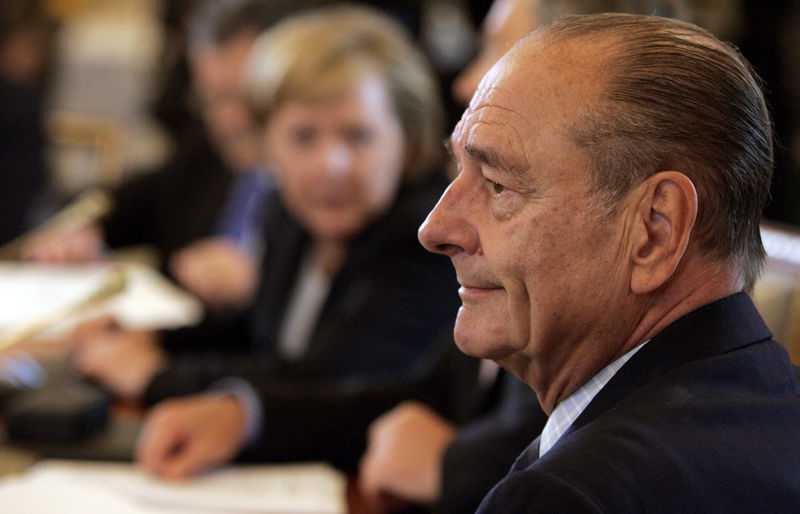Charismatic Chirac had steely will with human touch
28 September, 2019

Affable but armed with a steely will, Jacques Chirac was a consummate politician who served as Paris mayor, lawmaker, prime minister and then president of France for 12 years, always championing the nation’s sense of its own grandeur.
Chirac’s ambition and determination, which won him the nickname “Le Bulldozer,” kept him in office but alienated France’s oldest ally when he opposed the U.S.-led invasion of Iraq in 2003.
His death on Thursday at age 86 marked a nation feeling sorely in need of a leader with Chirac’s staying power. During 40 years in public life, he weathered political failures and corruption scandals but emerged as a president with a human touch. No French head of state since Chirac has lasted two terms.
Foreign leaders hailed Chirac’s statesmanship, while French President Emmanuel Macron said the conservative leader so familiar to the nation “embodied a certain idea of France.”
“Whether or not you shared his ideas, his combat, we all recognized ourselves in him, this man who resembled us, assembled us,” Macron said in a solemn homage on national television.
“Jacques Chirac was a great Frenchman ... in love with our land, steeped in our history and in love ... with our culture,” Macron said.
In a highly unusual move, Macron, a centrist, threw open the doors of the Elysee presidential palace Thursday night through Sunday so citizens could sign a condolence book. They streamed in after dark.
A lifelong conservative, Chirac fashioned himself as the political successor of Gen. Charles de Gaulle, the World War II Resistance hero turned president who even today is a national icon in France.
Chirac founded the party meant to carry on de Gaulle’s legacy, the Rally for the Republic. Its name has changed twice as it became tainted by corruption and other scandals, and today is a shadow of its former itself.
Corruption charges dating from his nearly two decades as Paris mayor dogged Chirac himself, but immunity from prosecution protected him. He finally was snared in 2011, four years after leaving the presidency, and found guilty on multiple charges and given a two-year suspended jail sentence.
France’s political long-distance runner, Chirac won the presidency on his third try in 1995. He was reelected to a second term in 2002 after a showdown with then-far-right leader Jean-Marie Le Pen. An exceptional groundswell of support from the left and right buoyed Chirac to an 82 percent landslide victory against Le Pen, a political pariah linked to racism and anti-Semitism.
In a bid to broaden his party’s appeal to rising nationalists, Chirac pushed the conservatives’ political compass further right before becoming president. He notably referred during a speech at a 1991 party banquet to “the noise and the odors” of a fictitious immigrant family on welfare. The rock group Zebda made a song out of the phrase.
Yet Chirac also raised France’s moral stature by acknowledging the French state was an accomplice to the deportation of tens of thousands of Jews during World War II, an admission that a generation of previous leaders failed to make.
“These dark hours soil forever our history and are an injury to our past and our traditions,” Chirac said after two months in office.
“The criminal folly of the [German] occupier was seconded by the French, by the French state,” he said, referring to the collaborationist Vichy regime.
Chirac embraced European unity as well, once calling it an “art,” and was personally and politically humiliated in 2005 when France said “no” in a referendum to a constitution meant to fortify the European Union.
Chirac’s considerable people skills were no match for the challenges of the presidency. He struggled to reform France’s regulated economy and failed to defuse tensions between police and minority youths that exploded into nationwide riots in 2005.
His popularity did not fully recover until he left the Elysee in 2007, when he handed power to protege-turned-rival Nicolas Sarkozy. Chirac went on to become one of France’s favorite political figures, often praised for his human qualities rather than his political achievements.
At Chirac’s side for 63 years was his wife and political accomplice, Bernadette Chirac. A politician in her own right, she served for decades as a local official in the Correze region in the heart of agricultural France, where her husband had his family roots. A stoic partner despite her dashing husband’s flirtations, she captured the admiration of the French for her charitable works, and her unperturbable demeanor.
“It’s not just a marriage of love,” she said in a 2015 interview with France 3 TV. “It was a marriage of ambition.”
In his long political career, Chirac was derided by critics as opportunistic and impulsive. But as president, he embodied the fierce independence so treasured in France: he championed the United Nations and a multipolar world as a counterweight to U.S. global dominance, and defended handsome EU agricultural subsidies from protests by the European Union.
In 2002, he reportedly became the first head of state to call global attention to climate change, railing in a speech, “Our house is burning, and we are looking the other way.” The phrase was widely repeated in ensuing years.
TAG(s):
